At Sailing Virgins, we spend most of our days on the water, and ultimately, in the sun. Coming from Australia, Croatia and sunny climes across the globe, our instructors know that there’s only so much sunscreen you can slap on. Being on the water nonstop means dressing smart. Wearing a hat and a UV shirt when the sun is at its peak keeps us comfortable and protected in the heat of the day.
When we started brainstorming our apparel line, we wanted to prove that technical sailing gear could still look cool. We were after something that the Sailing Virgins crew were proud to sport when they got back home. We set out to create something to keep the memory of their trip alive, but also wanted our gear to stand on its own. Our hats, tees, and drybags accomplished just that, but when it came to designing the long sleeve UV tee, we wanted to do even more.
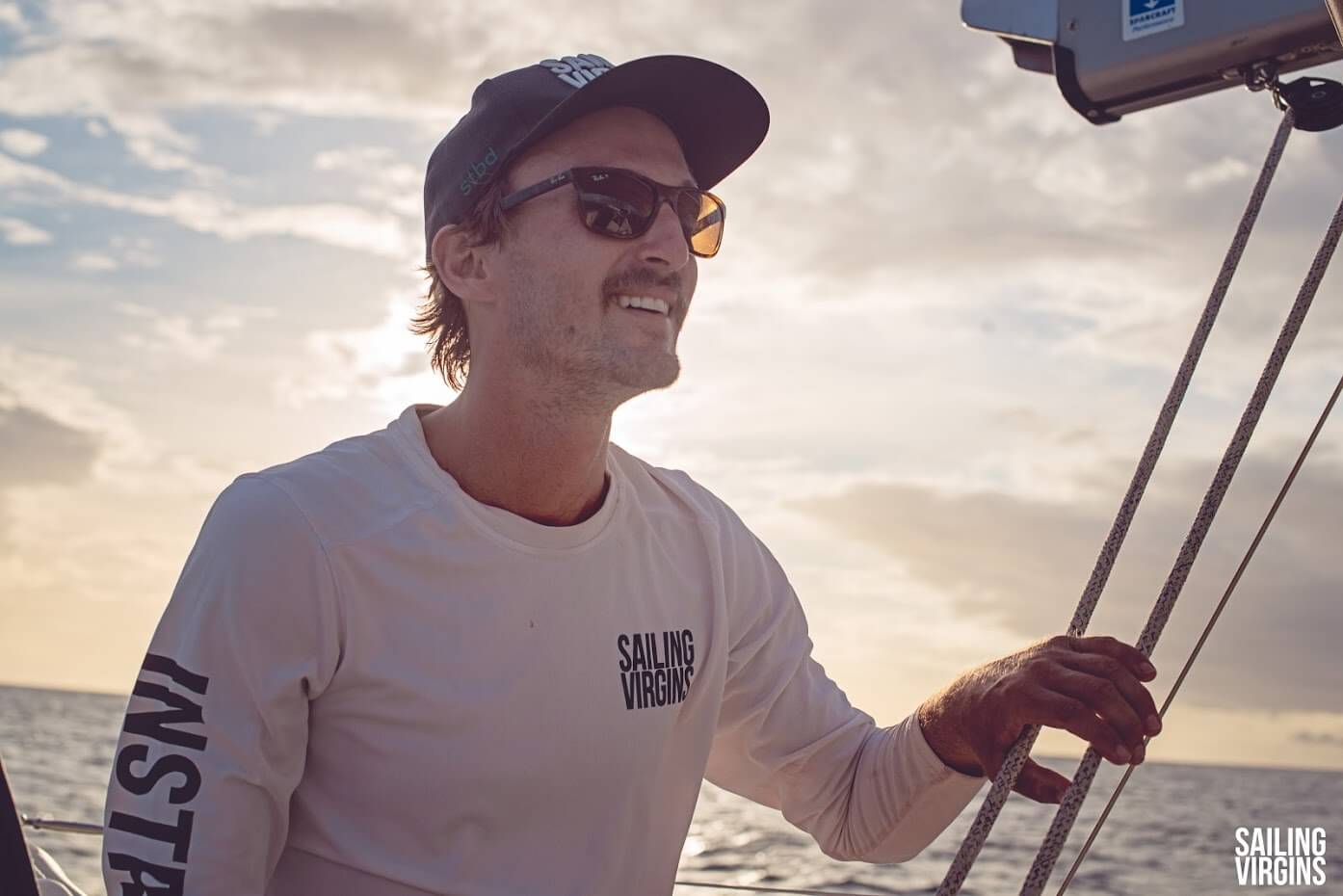
As sailors, we’ve heard stories of the massive garbage patches littering nearly every sea, and seen the devastating effects of plastic pollution firsthand. Our founder James Kell recalls an encounter in Thailand where “you couldn’t see a patch of water without some sort of rubbish” that motivated him to be part of the change.
Truth be told, it can be tough to get your head around the amount of trash in our oceans, even when you’ve seen it with your own eyes. Sadly, the big stuff like abandoned fishing nets and food containers floating on the surface only tells part of the story. It’s the smaller, so called microplastics that are suspended in the depths wreaking real havoc on the health of wildlife.
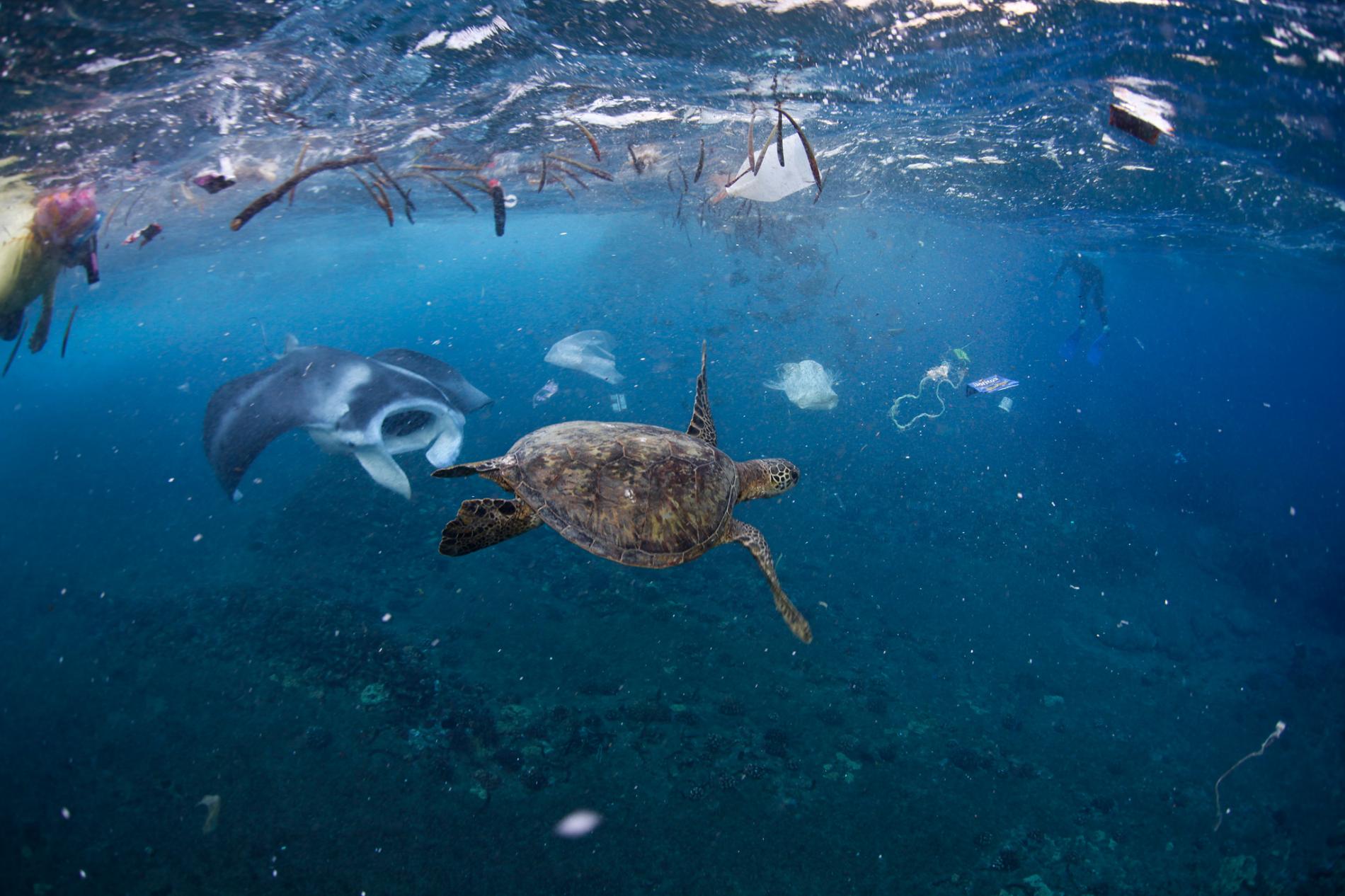 Image thanks John Johnson - OneBreathPhoto
Image thanks John Johnson - OneBreathPhoto
The NOAA (National Oceanic and Atmospheric Administration) describes the problem as more of “a soup with flecks of pepper floating throughout,” than a giant landfill bobbing around on top. So as you can imagine, removing the pepper is almost an insurmountable task.
If you keep up with 5gyres, Surfrider, Litterati or any number of ocean advocacy groups on social media, you’re probably familiar with photos of these tiny plastic bits turning up everywhere – from the world’s most beautiful beaches to the bellies of dead sea birds. Some are manufactured to be small, like beads from those fruity face scrubs we all used in high school, and some are formed from large pieces of plastic that were tumbled to bits by the forces of nature. While the shock and awe of garbage floating in our waterways is powerful, it’s this insidious microplastic “pepper” that works its way into the food chain and proves the most difficult to remove.
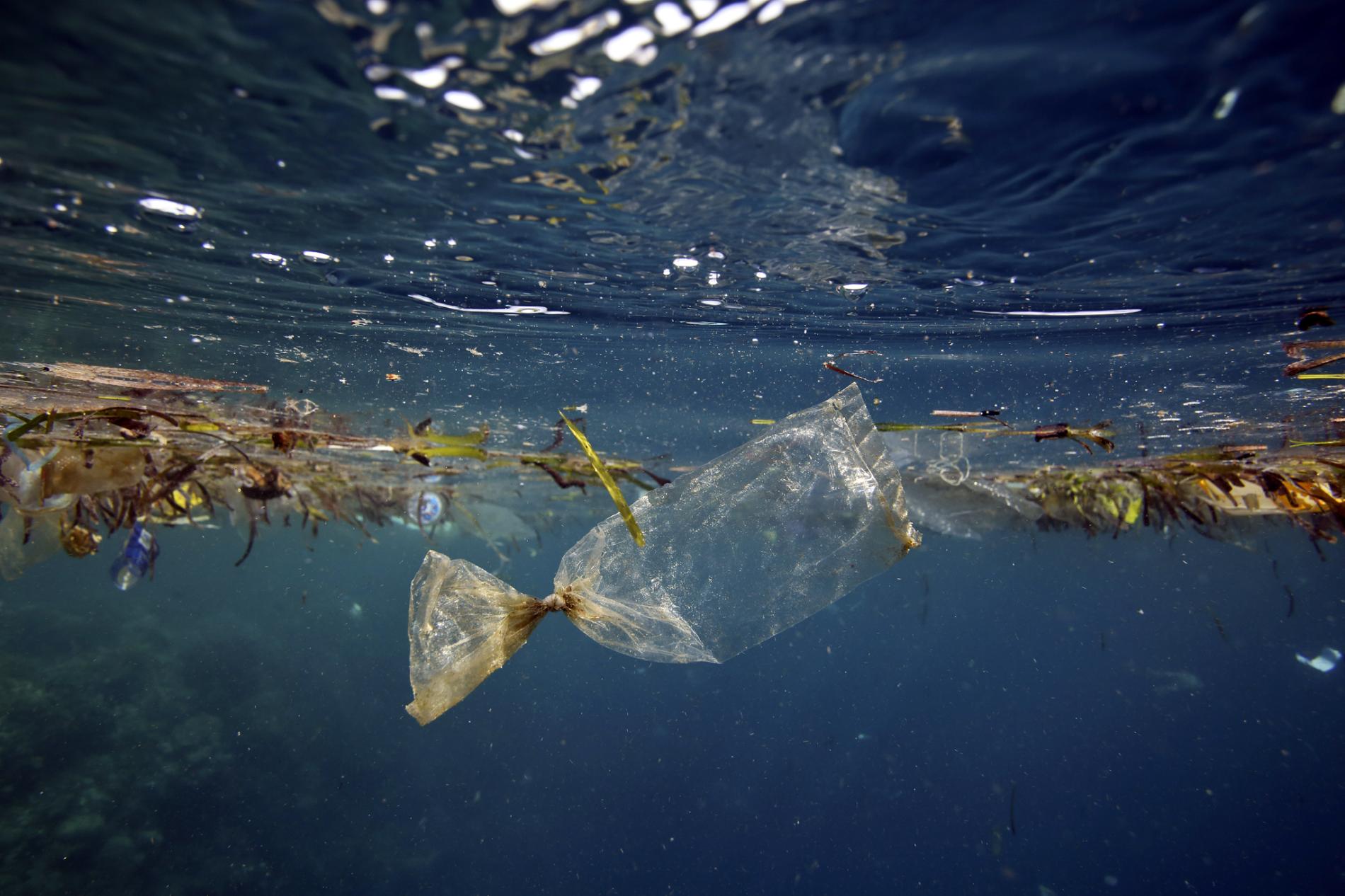 Image thanks Paul Kennedy - GettyImages
Image thanks Paul Kennedy - GettyImages
While the research is still emerging about how plastic pollution will impact our ecosystems long term, at Sailing Virgins, we decided that a simple way to start doing our part was to was to curb plastic consumption on the front end. Manufacturing sailing gear with recycled plastic fibers just made sense. However, navigating the apparel supply chain can be tricky for well meaning sailors with little experience in the business.
“We are going in with good intentions,” says Kell, “But we realize we have a lot to learn.” When it came time to manufacture our UV drytop, he personally traveled to Asia to scope out the factory where it would be made, and sourced a recycled plastic material known as RPET instead of virgin polyester to construct the shirts.
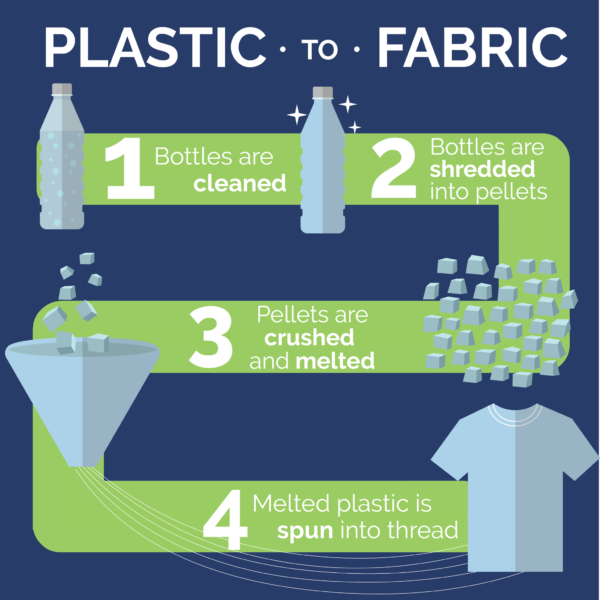 Image thanks EarthHero
Image thanks EarthHero
Keeping plastic out of the ocean is awesome, of course, but you may be wondering whether a shirt made from plastic bottles would be an enjoyable thing to wear. For that answer, we’ll take it back to the source. PET (sans the R for “recycled”) is a fossil fuel derived polymer with a long and terribly unsexy technical name - we won’t bore you with the specifics there. Simply put, it’s a substance made from crude oil that can be processed in a couple of different ways to make polyester fibers or solid plastic objects. From yoga pants, to tennis shoes, to household containers, PET is pretty much everywhere. When it’s recycled, it’s returned to an earlier state where it can be spun into soft fibers for fabric.
Instead of extracting new fossil fuels from the earth and turning them into athletic wear, many sustainable apparel companies (and now Sailing Virgins) are tapping into the energy saving, plastic pollution fighting power of recycled PET. About 5 plastic water bottles go into an RPET shirt, and for one with long sleeves, you can tack on a few more.
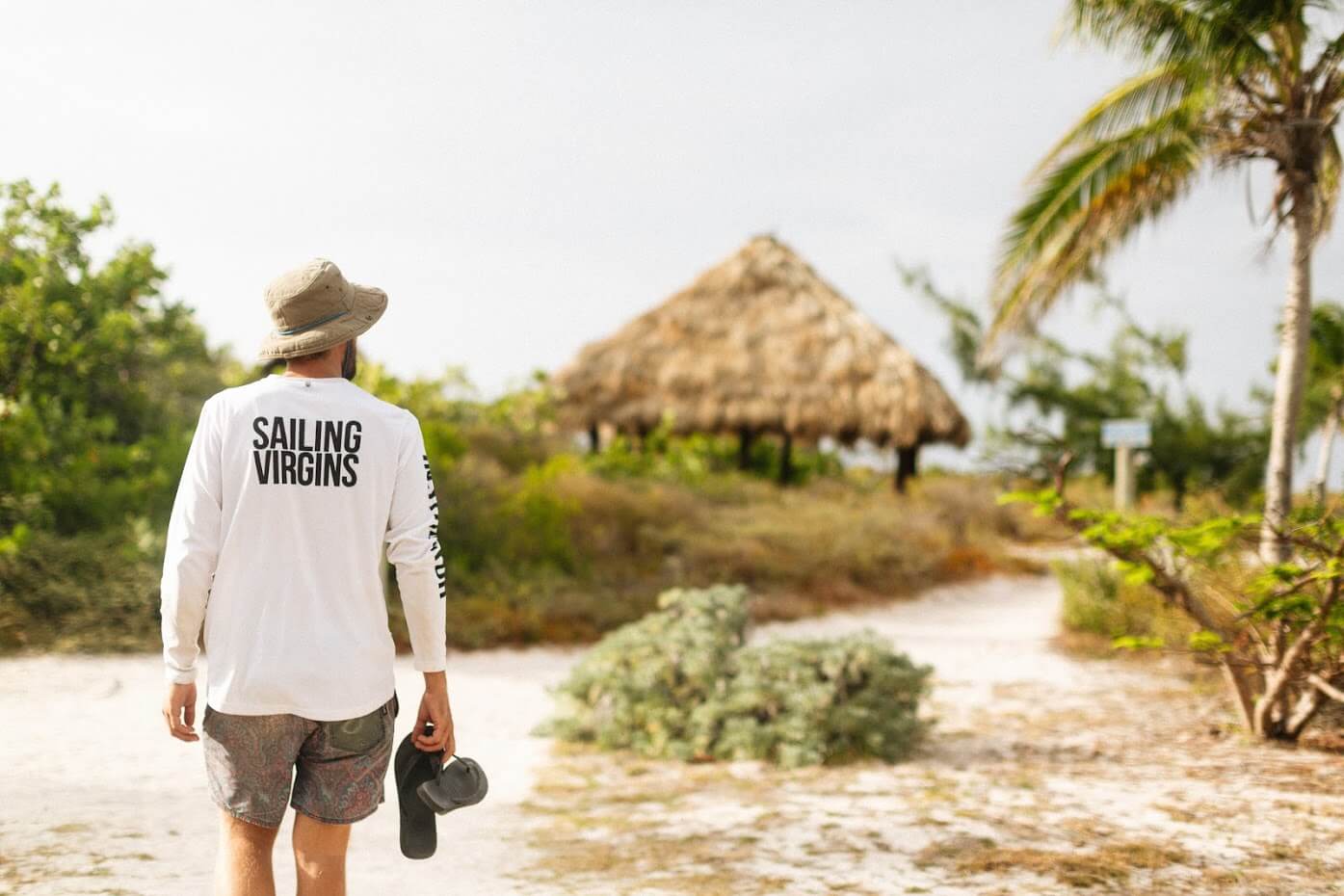
Not only is recycled PET better for our planet, we think it functions just as well. Our recycled bottle UV drytop feels light and breezy, while standing up to the test our instructors put them through every day. The cut is comfy, and a wicking grey collar helps keep the sweat off your neck. A UPF factor of +30 offers protection from the sun’s stealthy rays, and the anti-odor treatment – well, let’s just say we threw that one in there for our shipmates.
A long sleeve sun shirt is an essential for any boat trip, and we figured we’d make one that looks great and gives the planet a helping hand. We’re proud of our new UV drytop, and while we recognize that sustainable sailing gear isn’t going to save the world, it feels like a step in the right direction. At Sailing Virgins, the ocean is everything to us, and it’s our duty to be good stewards in as many ways as we can.

